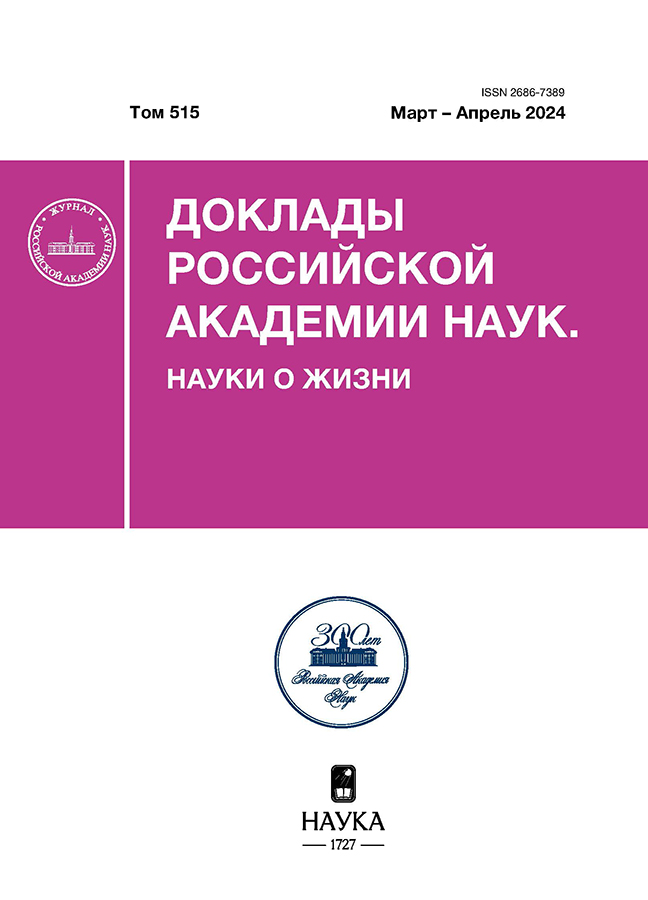Nemertodermatid endosymbionts of deep-sea acorn worms (Hemichordata, Torquaratoridae)
- Autores: Ezhova О.V.1, Lukinykh A.I.1, Malakhov V.V.1
-
Afiliações:
- Lomonosov Moscow State University
- Edição: Volume 515, Nº 1 (2024)
- Páginas: 60-63
- Seção: Articles
- URL: https://vestnik.nvsu.ru/2686-7389/article/view/651444
- DOI: https://doi.org/10.31857/S2686738924020119
- EDN: https://elibrary.ru/WFFSDJ
- ID: 651444
Citar
Texto integral
Resumo
Worm-like endosymbionts were found in the hepatic region of a deep-sea acorn worm, a representative of the family Torquaratoridae Quatuoralisia malakhovi [Ezhova et Lukinykh, 2022] from the Bering Sea. Histological study of the symbionts allows us to attribute them to the taxon Nemertodermatida. Torquaratorids are similar in type of feeding to holothuroids, in which the xenacoelomorph endosymbionts have also been found.
Palavras-chave
Texto integral
Sobre autores
О. Ezhova
Lomonosov Moscow State University
Autor responsável pela correspondência
Email: olga_ejova@mail.ru
Rússia, Moscow
A. Lukinykh
Lomonosov Moscow State University
Email: olga_ejova@mail.ru
Rússia, Moscow
V. Malakhov
Lomonosov Moscow State University
Email: olga_ejova@mail.ru
Academician
Rússia, MoscowBibliografia
- Holland N.D., Clague D.A., Gordon D.P., et al. ‘Lophenteropneust’ hypothesis refuted by collection and photos of new deep-sea hemichordates // Nature. 2005. Vol. 434. P. 374–376.
- Osborn K.J., Kuhnz L.A., Priede I.G., et al. Diversification of acorn worms (Hemichordata, Enteropneusta) revealed in the deep sea // Proc. R. Soc. B. 2012. Vol. 279. P. 1646–1654.
- Osborn K.J., Gebruk A.V., Rogacheva A., et al. An externally brooding acorn worm (Hemichordata, Enteropneusta, Torquaratoridae) from the Russian Arctic // Biol. Bull. 2013. Vol. 225. P. 113–123.
- Priede I.G., Osborn K.J., Gebruk A.V., et al. Observations on torquaratorid acorn worms (Hemichordata, Enteropneusta) from the North Atlantic with descriptions of a new genus and three new species // Invert. Biol. 2012. Vol. 131. № 3. P. 244–257.
- Holland N.D., Hiley A.S., Rouse G.W. A new species of deep-sea torquaratorid enteropneust (Hemichordata): a sequential hermaphrodite with exceptionally wide lips // Invert. Biol. 2022. Vol. 141. e12379.
- Smith K.L.J., Holland N.D., Ruhl H.A. Enteropneust production of spiral fecal trails on the deep-sea floor observed with time-lapse photography // Deep Sea Res. I. 2005. Vol. 52. P. 1228–1240.
- Rybakova E., Galkin S., Gebruk A., et al. Vertical distribution of megafauna on the Bering Sea slope based on ROV survey // PeerJ. 2020. Vol. 8. e8628.
- Ежова О.В., Белолюбская К.И., Крупенко Д.Ю. и др. Первая находка трематод (Digenea) в глубоководных кишечнодышащих Torquaratoridae (Hemichordata, Enteropneusta) // Доклады РАН. Науки о жизни. 2022. Т. 503. С. 133–137.
- Ehlers U. Comparative morphology of statocysts in the Plathelminthes and the Xenoturbellida // Hydrobiologia. 1991. Vol. 227. P. 263–271.
- Zhang Z.-Q., Hooper J., Soest R., et al. Animal biodiversity: An outline of higher-level classification and taxonomic richness // Zootaxa. 2011. Vol. 3148. P. 24–25.
- Brusca R.C., Moore W., Shustes S.M. Invertebrates. Introduction to the Bilateria and the Phylum Xenacoelomorpha: triploblasty and bilateral symmetry provide new avenues for animal radiation. Sinauer Associates, Inc. 2016. Ch. 9. P. 345–372.
- Haszprunar G. Review of data for a morphological look on Xenacoelomorpha (Bilateria incertae sedis) // Org. Divers. Evol. 2016. Vol. 16. P. 363–389.
- Ezhova O.V., Lukinykh A.I., Galkin S.V., et al. Deep-sea acorn worms (Enteropneusta) from the Bering Sea with the description of a new genus and a new species of Torquaratoridae dominating soft-bottom communities // Deep-Sea Res. II. 2022. 105014.
- Ezhova O.V., Trukhan M.A., Lukinykh A.I., et al. Digestive system and feeding of deep-sea acorn worm Quatuoralisia malakhovi (Enteropneusta: Torquaratoridae) from the Bering Sea // Deep-Sea Res. I. 2023. (in press).
- Rodkina S.A. The fatty acid composition of the deep-sea acorn worm Quatuoralisia malakhovi Ezhova et Lukinykh, 2022 (Hemichordata, Enteropneusta) // Rus. J. Mar. Biol. 2023. Vol. 49. № 4. P. 326–329.
- Rodkina S.A., Kiyashko S.I., Mordukhovich V.V. Diet of deep-sea holothurians in the Volcanologists Massif, Bering Sea, as inferred from stable isotope and fatty acid analyses // Deep-Sea Res. II. 2023. 105266.
- Jangoux M. Diseases of echinodermata. II. Agents metazoans (Mesozoa to Bryozoa) // Dis. Aquat. Org. 1987. Vol. 2. P. 205–234.
- Беклемишев В.Н. О паразитных турбелляриях Мурманского моря. Ч. 1: Acoela // Труды Петроградского Об-ва естествоиспытателей. 1916. C. 103–172.
- Westblad E. On Meara stichopi (Bock) Westblad, a new representative of Turbellaria Archoophora // Ark. Zool. 1949. Vol. 1. P. 43–57.
Arquivos suplementares











